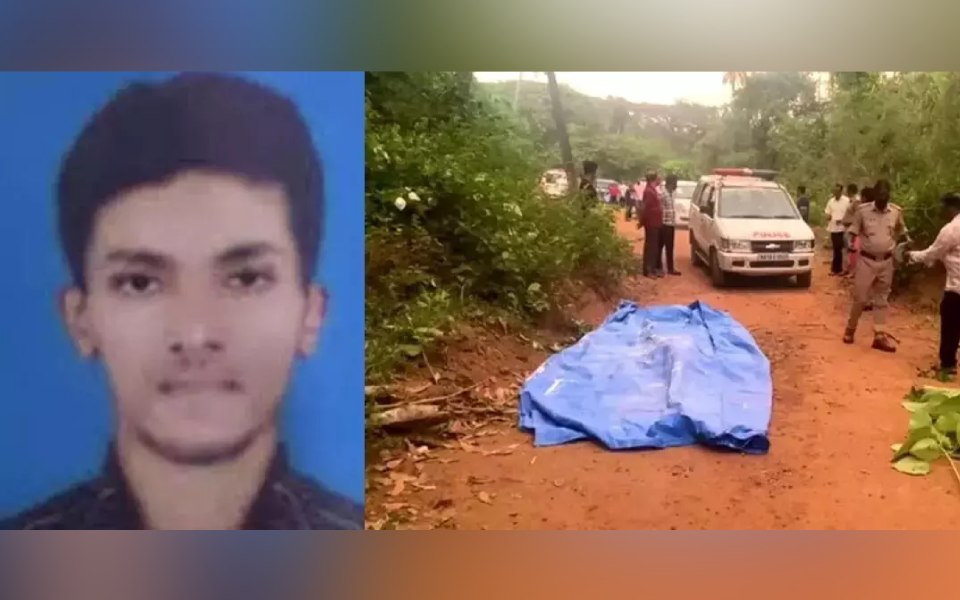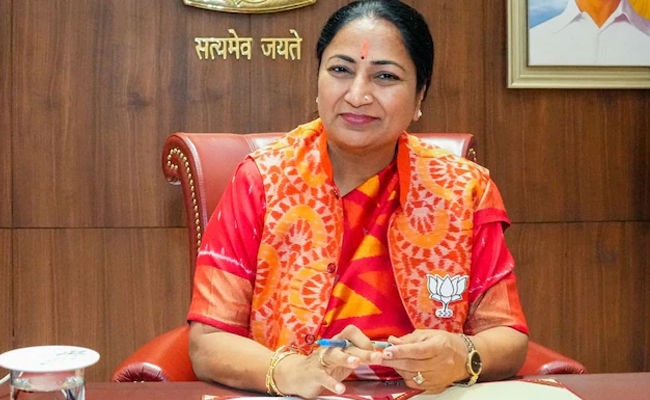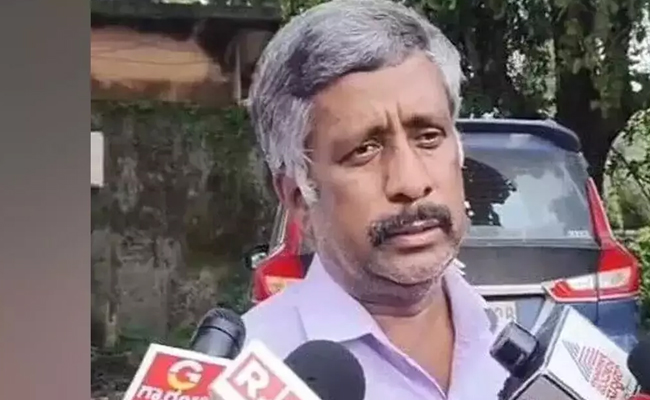Mangaluru: The Second Additional District and Sessions Judge of Dakshina Kannada, Mangaluru, Sri. Jagadeesh V.N., today rejected the bail petitions of three individuals seeking release in connection with the mob lynching incident in Kudupu on April 27, 2025. The order, issued in Crl.Misc./457/2025, pertains to petitioners Saideep (29), Anil Kumar (31) and Yathiraj (27), who were seeking regular bail under Section 483 of the Bharatiya Nagarik Suraksha Sanhita, 2023.
The case stems from Crime No. 37/2025 registered at the Mangaluru Rural Police station for offences punishable under Sections 103 (2), 115 (2), 189 (2), 191 (1), 191 (3), 240 read with Section 190 of the Bharatiya Nyaya Sanhita, 2023.
The advocate for the petitioners argued that the incident occurred in a mob setting after the unknown person raised a slogan. He contended that the petitioners never specifically assaulted the deceased as alleged.
He also highlighted that an UDR case was initially registered, suggesting the subsequent case was false. The counsel further pointed out that the complaint only mentioned that the gathered individuals assaulted the person with their hands. He also brought to the court's attention that the same court had already granted bail to some other accused persons facing similar accusations, arguing that the present petitioners should be treated similarly.
The Special Public Prosecutor opposed the bail petition, stating that the incident constituted communal violence. SPP argued that the complainant clearly named the petitioners as being involved in the assault with hands and sticks. The provisional postmortem report indicated that the death was caused by blunt force injuries. The prosecution further submitted that the investigation revealed mobile phones of the accused were recovered, containing recordings and photographs of the incident.
These were analysed, allegedly showing the petitioners assaulting the deceased. Call records also reportedly placed the petitioners at the scene.
The Investigating Officer's report, submitted by the prosecution, claimed that before the assault, the deceased was stripped naked. Photographs reportedly showed the accused assaulting the naked person with clubs and hands. The report also alleged that after the assault, the deceased was taken near a railway track and disposed of to destroy evidence and facilitate the filing of a 'C' report (closure report) by the police.
The Investigating Officer also indicated that some absconding accused, some who were released on bail, and some who were not yet arrested had attempted to destroy evidence and tamper with prosecution witnesses. The prosecution argued that releasing the petitioners on bail at this stage would undoubtedly lead to further witness tampering and the commission of similar offenses, thus hindering the ongoing investigation.
After hearing both sides and examining the records, the court formulated two points for consideration: 1. Whether the petitioners had presented reasonable grounds to be enlarged on bail? and 2. What order should be passed? The court's finding on the first point was "Negative," leading to the order of rejection.
While acknowledging that the court had previously granted bail to some accused facing similar allegations, the judge emphasised that the subsequent investigation revealed the offense to be a "heinous offence" committed by a gang. The court found the investigating agency's apprehension of witness tampering and hindrance to further investigation to be "acceptable" given the material presented.
The court also noted that police custody of some accused had been obtained for further investigation, and the investigating agency still needed to collect significant evidence to reach a logical conclusion. Based on the evidence currently on record, the court concluded that there was a prima facie case against the petitioners. Given the gravity and seriousness of the offense, the court deemed it not a fit case to exercise the discretion of granting bail under Section 483 of B.N.S.S.
Consequently, the court rejected the bail petition filed by Saideep, Anil Kumar and Yathiraj.
Let the Truth be known. If you read VB and like VB, please be a VB Supporter and Help us deliver the Truth to one and all.
Kolkata (PTI): Alleging that her West Bengal counterpart Mamata Banerjee had approached the Supreme Court to stall the SIR exercise to prevent the identification of infiltrators, Delhi Chief Minister Rekha Gupta on Sunday claimed that the people of the state have made up their minds to dislodge the Trinamool Congress from power.
The TMC countered strongly, urging Gupta to "look into her own backyard" and accused her of making absurd allegations against the TMC government without checking facts.
Addressing participants at the 'Nari Sankalp Yatra' organised by the BJP's women's wing at Science City auditorium here, Gupta alleged that the "hands-off" and appeasement policies of the TMC government had allowed thousands of infiltrators to enter the state in recent years.
She claimed that this had put a strain on basic rights such as access to water, electricity, ration, education, livelihood and the right to vote for genuine citizens.
"She wants to perpetuate this and hence is trying to stall the SIR exercise, which aims at identifying and deporting infiltrators. Imagine a chief minister going to the apex court to argue against an exercise meant to ensure free and fair polls," Gupta said.
The BJP leader alleged that appeasement politics had reached an "alarming level" under the TMC regime.
Raising concerns over women's safety, she claimed that women in the state were not secure despite having a woman chief minister.
Referring to the rape-murder of a woman doctor at RG Kar Hospital, Gupta alleged that the state government had failed to respond adequately to such crimes.
She also referred to the alleged rape of a woman medic in Durgapur and another law student on a Kolkata college campus, claiming that criminals had been emboldened to commit brutalities against women.
She alleged that in crimes against women, overall crime incidents and child marriages, West Bengal remained among the top -- "a slur on a state which once led intellectual and social movements and set examples for the rest of the country," she said.
Criticising the state government's welfare initiatives, she said schemes such as Kanyashree were built on "false claims" and asserted that women needed security rather than assurances.
Accusing the state government of blocking central schemes, Gupta alleged that funds worth "lakhs of crores of rupees" had not reached the poor due to non-implementation of programmes such as Ayushman Bharat, PM Awas Yojana and Jal Jeevan Mission by the state.
"You are only interested in renaming projects and taking credit," she said.
Gupta also alleged that the education sector in the state had been adversely affected, saying several state-run schools had closed due to a shortage of teachers and that the government was opposed to the National Education Policy.
Drawing a comparison with BJP-ruled Delhi, Gupta said, "People have already voted out 'Bhaia' (a reference to former Delhi chief minister Arvind Kejriwal). Now it is your turn to bid farewell to 'Didi'." Calling upon women to resist what she termed "strong-arm tactics", she urged them to assert their strength, invoking the imagery of Goddess Durga.
"Bengal has the right to live with dignity, and women have the right to live with dignity," she added.
Reacting to Gupta's allegations, West Bengal Women and Child Welfare minister Shashi Panja accused her of making "absurd allegations" against the Trinamool Congress government ahead of elections.
Panja alleged that during Gupta's tenure in Delhi, several incidents had raised serious concerns, including reports of missing young women and a blast near the Red Fort.
She also criticised the air pollution situation in the national capital, claiming that people were struggling to breathe.
The TMC leader said that despite being in power for a year, Gupta was making "tall claims" instead of addressing key issues in Delhi.
Panja further alleged that the Delhi CM visited West Bengal during elections to "peddle false allegations" against the state government.
Rebutting Gupta, the TMC said in a post on X said, "Madam why did you go off-script again? For your edification, here are the cold, hard facts: In total cases of crimes (IPC + SLL), Bengal ranks a respectable 15th, far safer than BJP-ruled Uttar Pradesh, Maharashtra, and Gujarat, which languish near the bottom."
"In overall crime rate, Bengal sits comfortably at 28th. Who's second? Your own Delhi. Double Engine Gujarat and Haryana grab 4th and 5th as top-tier crime havens," the TMC said.
"In child marriage, Assam again takes the shameful pole position. And yet you dare lecture Bengal? Stop embarrassing yourself, stop the hypocrisy, and maybe fix the rotting mess in your own backyard before pointing fingers at a state that's outperforming your disasters on every key metric," the TMC countered.





